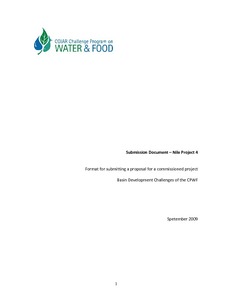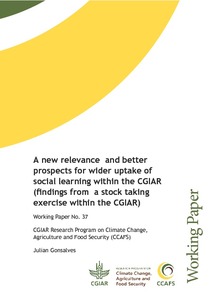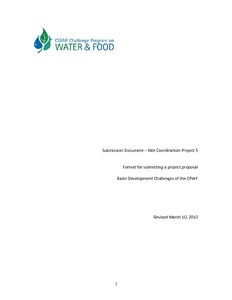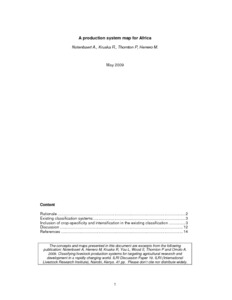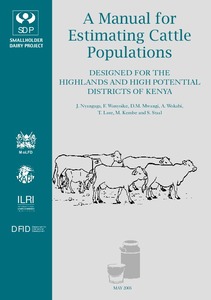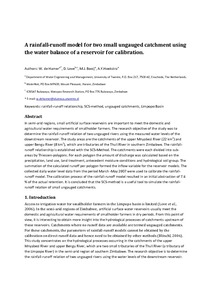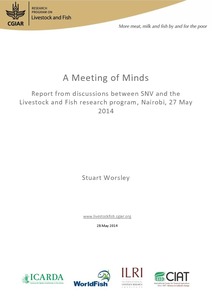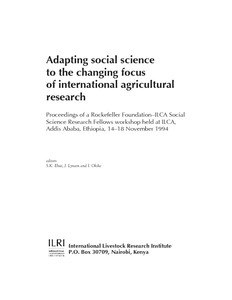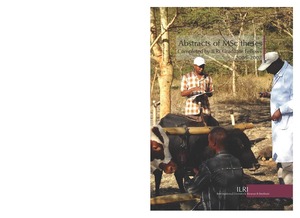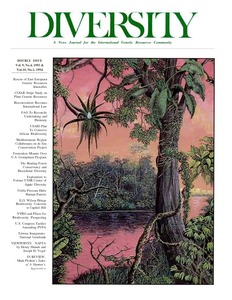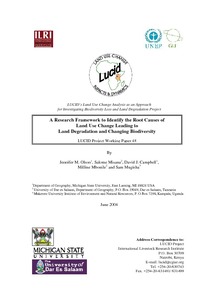parcours
AGROVOC URI:
A new relevance and better prospects for wider uptake of social learning within CGIAR
Relying entirely on survey information and personal exchanges with over 70 scientists from within the CGIAR network, this working paper attempts to achieve a better understanding of the scope of social learning related efforts undertaken in CGIAR and main issues of relevance to more current efforts, such as that planned by the CGIAR program on Climate Change Agriculture and Food Security (CCAFS). A wide range of methods was identified, where groups of people learn in order to jointly arrive at solutions to pressing food security problems.
A landscape approach to rainwater management in Ethiopia: Project 5 proposal on coordination and multi?stakeholder platforms
A manual for estimating cattle populations: designed for the highlands and high potential districts of Kenya
Adapting social science to the changing focus of international agricultural research. Proceedings of a Rockefeller Foundation-ILCA social science research fellows workshop
The papers in this proceedings provide a cross section of science research in international agricultural research centres (IARCs), where the objectives and research foci within the Consultative Group on International Agricultural Research (CGIAR) have changed substantially in the 1990s. The book is divided in five sections. The first explores priority setting and research evaluation of commodity programmes. The second looks at institutional issues. The third explores issues related to commodity policies and food security.
Abstracts of MSc theses completed by ILRI graduate fellows 2006-2007
The International Livestock Research Institute (ILRI) is one of 15 future harvest
centres, which conduct food and environmental research to help alleviate
A rich trove of sub Saharan Africa's forage genetic resources conserved at ILCA
Adding value to smallholder forage-based dual-purpose cattle value chains in Nicaragua, in the context of carbon insetting. Thesis (MSc. in Agricultural Sciences in the Tropics and Subtropics)
The thesis explores the extent to which payment for the ecosystem service of carbon sequestration
provided in a value chain context, through an innovative climate change mitigation and adaptation
strategy known as 'carbon insetting', could generate 'win-win' outcomes for all actors.
Drawing on examples of where the concept of carbon insetting has been adopted in coffee and cocoa value chains in Mexico and Honduras respectively, the thesis investigated the feasibility of

